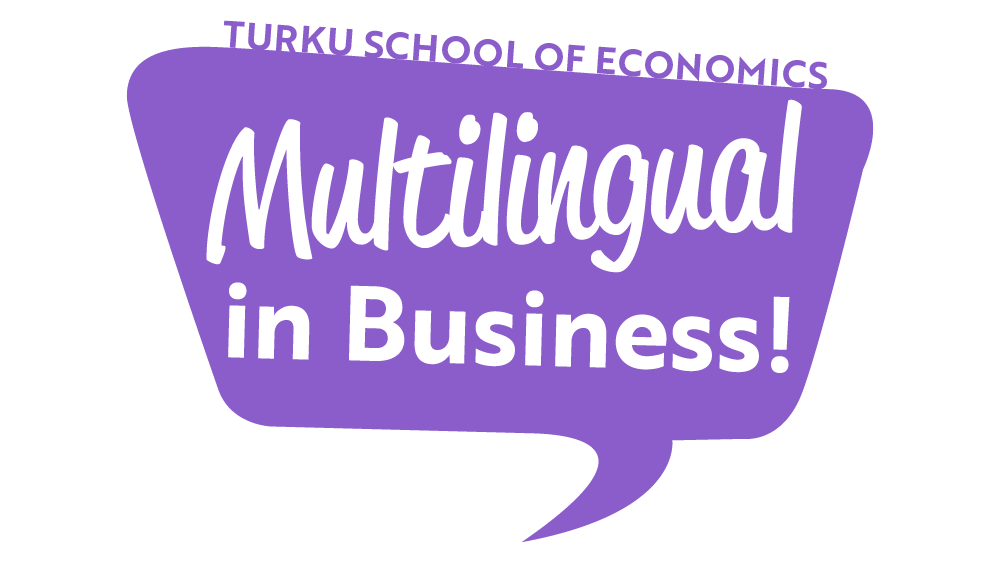Multilingual in Business!

Plurilingual and intercultural proficiency are a part of the key competences in international business. In companies operating internationally, business people use several languages at the same time, switching and mediating between languages and cultures.
Based on the key results of the Pluriling Study, an innovative language module Multilingual business communication has been introduced at the Turku School of Economics.
Pluriling Study in a nutshell
Key questions:
- How plurilingual are people in IB?
- Isn’t one lingua franca enough?
- Which plurilingual competences are needed in international business communication?
The Pluriling Study (a language needs analysis):
- Focus on alumni of Turku School of Economics, mainly with major International Business and alumni working abroad
- Online survey 2014, number of respondents: 214
- With support of Liikesivistysrahasto | Foundation for Economic Education
Results:
- The staff is plurilingual, mastering six or more languages (44 %) or five languages (38 %)
- Multilingual situations are normal, 53 % experience them always or daily
- Typical multilingual situations are mostly internal communication with colleagues and in meetings. They are about negotiations, decision making, and small talk (= relational communication).
- Multilingual communication typically consists of combinations with English and Finnish, Swedish or German; combinations with two (foreign) languages are the most frequent, but combinations with three languages occur often.
Plurilingual proficiency:

Plurilingual proficiency is the ability to use three or more languages for the purpose of communication with specific skills bridging the gap between the languages:
- Language alternation:
"In my earlier work in Germany I changed between German-English-Finnish 20-30 times in a day." - Code-switching:
"I am very practical in terms of languages and use code-switching, if necessary. (...), if I sometimes don’t find a particular term quickly in a particular language, I resort to code-switching rather than leaving too long to find the right term." - Mediating:
"Training plurilingual discussion: Interpreting to other students what was discussed." - Transfer:
"Knowing and understanding different languages (understanding, for example, knowing Spanish, but not Italian, the reading of an Italian email may still succeed)."
Quotes from the TSE-alumni, Pluriling Study
With support of Liikesivistysrahasto / Foundation for Economic Education.
More information at Pluriling Study's project site